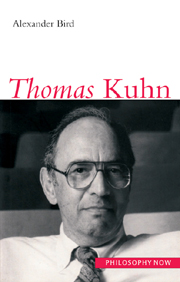Preface
Summary
In the first two-thirds of the twentieth century the philosophy of science was, alongside logic and the philosophy of mathematics, central to what we now call the “analytic” tradition in philosophy. For the logical positivists in particular, the distinction between philosophy of science and the rest of philosophy scarcely existed. Science was the paradigm of a posteriori knowledge, knowledge gained through the senses (logic and mathematics were paradigmatic of a priori knowledge, knowledge gained from pure reflection). Therefore, insofar as the central questions of philosophy were concerned with epistemology (the theory of knowledge), the philosophical understanding of science was essential to understanding how knowledge of the world was possible. Furthermore, just as science was regarded as paradigmatic of empirical knowledge, scientific language was correspondingly taken to be characteristic of any language used to talk about the world. And so philosophy of science remained central to the logical positivists, even when their concerns shifted from the explicitly epistemological to the seemingly new field of the philosophical analysis of language.
The philosophical position of the philosophy of science in the last third of the twentieth century was rather different. Its concerns were clearly distinct from those of core epistemology and the philosophy of language. For example, while the main preoccupation of orthodox epistemologists was the search for the proper definition of (personal) knowledge, philosophers of science ignored this altogether, being more concerned with the nature of change in theory preference among groups of scientists.
- Type
- Chapter
- Information
- Thomas Kuhn , pp. vii - xiiPublisher: Acumen PublishingPrint publication year: 2000



